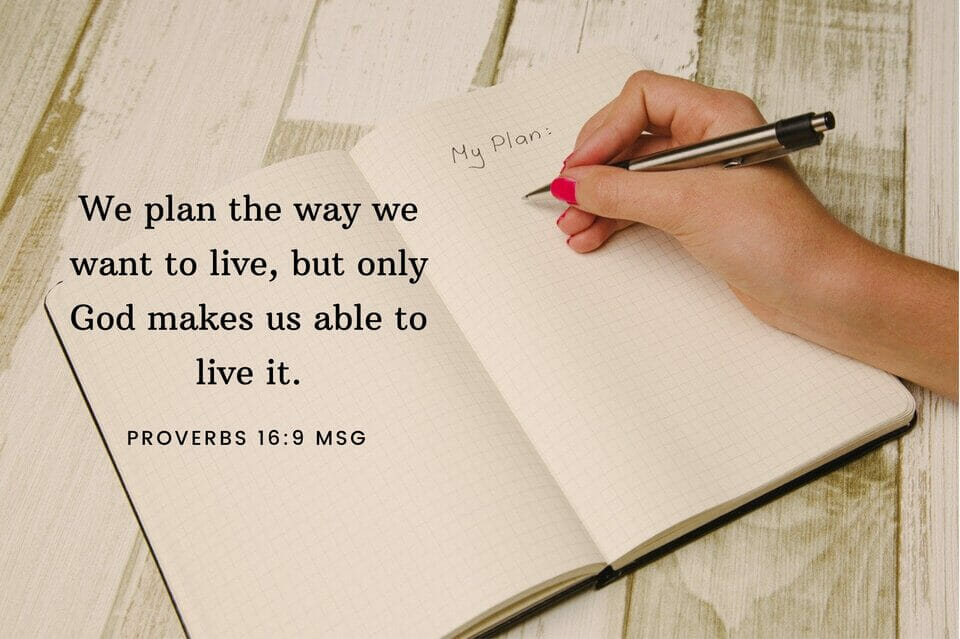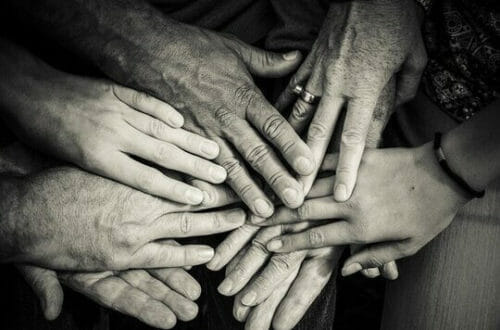Plan for Your Future
There are many verses in the Bible that mention planning, and it appears that planning is a good principle to live by. There are coaches and gurus that teach multiple methods of how to plan our time to use it most efficiently, allowing us to do more of the things that we enjoy doing.
Most of us have a plan – of sorts – even if we don’t use a planner. Some of us use a planner, which may be paper or digital or a combination of both, and plan to the minute what we hope to accomplish. We make “to do” lists painstakingly written out or hastily scribbled on lovely stationary pads, sticky notes, scraps of paper, the backs of receipts… Some plan every moment while others have a general idea of when a project might be completed. The ways of planning our days are as varied as the personalities of the people implementing the plan.
One thing is constant and consistent and cannot be changed no matter how much we desire it: We all have the exact same number of hours in a day whether we plan or not.
We all have exactly twenty-four hours a day to do whatever we choose to do. That doesn’t seem like a lot of time as twenty-four isn’t a big number; however, multiply that by seven days and you see you have 168 hours in a week.

I have two perspectives on planning to share with you today.
First, take the time to make a plan for today.
For years, I thought it took too much time to plan my day, time I didn’t have to “waste.” However, I have learned over the last two years that I don’t have time to NOT make a plan. Let me explain. When I don’t take the time to plan, I spend a lot of time spinning around in circles in my mind. Trying to remember that elusive To Do list that needs to get done, and, invariably, something is forgotten. Sometimes it’s something inconsequential – like not taking out the trash that I’m reminded of when I walk into the room and the stench reaches my nostrils – but sometimes it’s something more important – like making sure I pick up my daughter at school on time.
Now, don’t think for a moment that my planning is exact or that it goes perfectly. But, in the example of picking up my daughter, I can set a timer to stop whatever I’m doing to prepare to walk out the door at a time that allows me arrive early or on time. Arriving early gives me an opportunity to do something I enjoy – reading a book, listening to a podcast, or sitting quietly in prayer.
Remember to include prayer when you make your plan. The psalmist David wrote, “Commit everything you do to the Lord. Trust him, and he will help you.” Psalm 37:5 NLT If we involve God in our planning, He will help us to plan the best way to use our time.
Second, take the time to make a plan for the future.
This point is a little harder to delve into, but here goes. Let’s go back to those numbers twenty-four and 168. We all like to believe we have many twenty-fours and 168s ahead of us… the hard truth is we don’t know how much time we have here on this earth.
My brother recently passed away unexpectedly. He didn’t have any life-threatening conditions, and he wasn’t ill for a period of time. He had a stroke one day and died after complications from that stroke. He was only sixty-six years old. Young for today’s life expectancy.
Why am I telling you this?
Because for the last two months, as his next of kin, I have been trying to sort a few things out. What I didn’t/don’t know far outweighs what I did/do know.
- Did he want to be allowed to pass peacefully or be on life support indefinitely?
- Did he want to be buried or cremated?
- Did he want his belongings to go to his mother? his brother? the “daughter” he raised? his significant other? his deceased wife’s family?
- Did he want the money he’d saved to go to one or none of the above options?
- Was there a pastor he was especially close to that he wanted to perform his services?
- Did he have a favorite song he wanted to play when people gathered to mourn his passing and celebrate his life?
My brother didn’t make a plan for those who would be left behind when his life ended. So, in addition to the grief of losing him too soon, we have been sorting things out as best we can.
The plan you make for the end of your life is not for you, rather it is for those who are left behind. It is a roadmap, a compass, a signpost, pointing the way for them down the road of sorrow to fulfill and honor your wishes. Don’t leave them wondering about the questions I listed above and so many others. Give them that peace of knowing this is what you wanted because you took the time to make a plan for a future without you.
Be blessed and be a blessing, my Sister!


